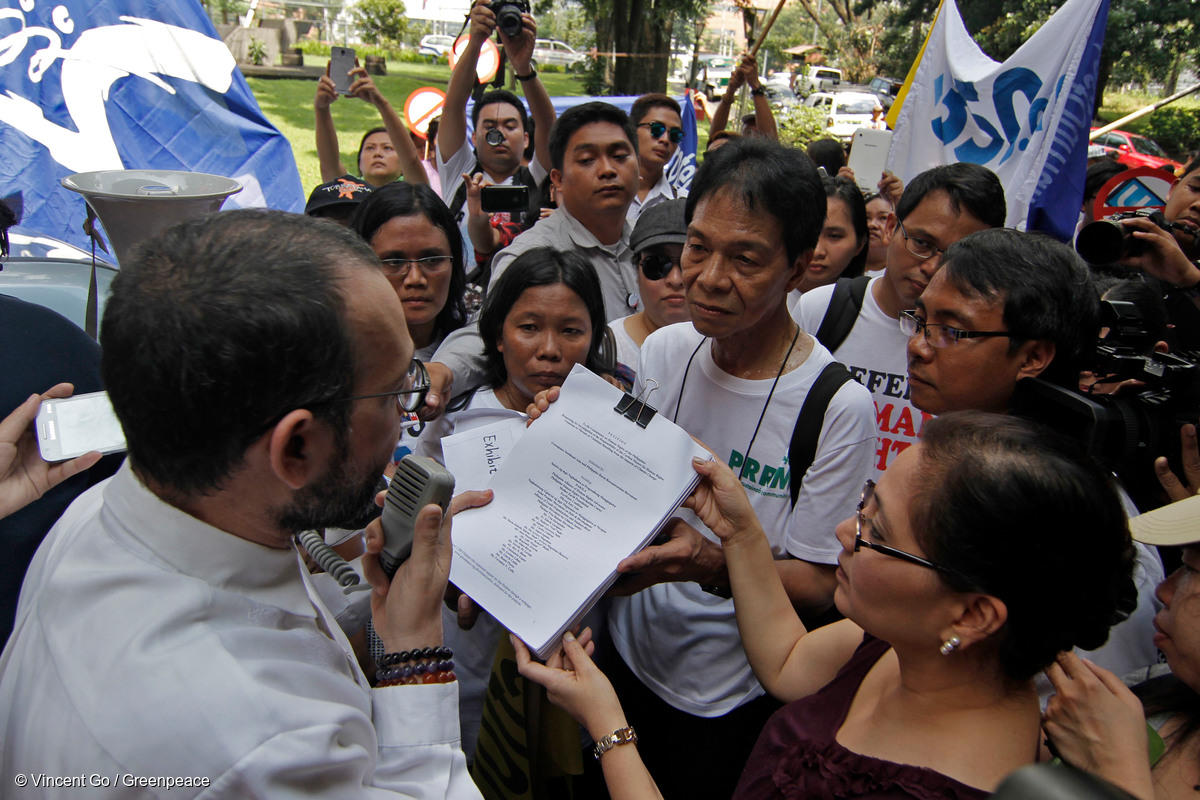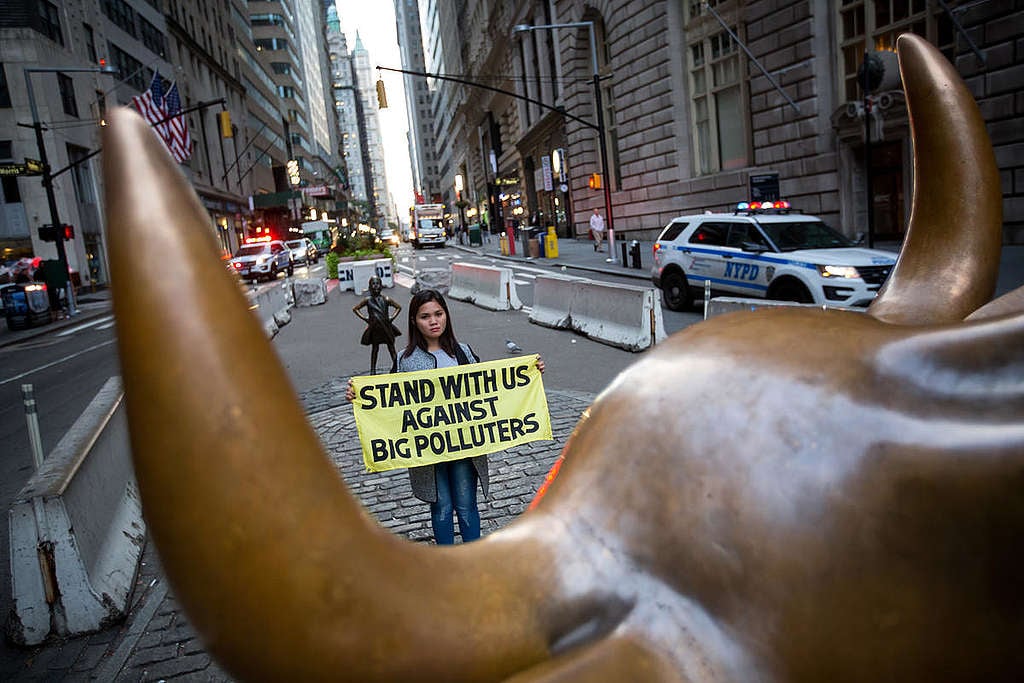Martial Law in the Philippines in the 1970s and ‘80s… During those turbulent times, students were at the forefront of massive mobilizations, religious groups were occupying the streets, and people from different walks of life were standing their ground—demanding the ouster of a giant that has taken rights away from the Filipino people.
When we talk about the People Power Revolution, we remember history, we remember those who suffered, and those who survived. We would like not to repeat those harrowing times again.
But, today, the environment in which we live remains under the hands of powerful players, groups, and individuals who are inarguably threatening the welfare and safety of every single Filipino — in fact, every human being on earth — alive and yet to be born. Stronger typhoons and longer droughts and dry spells are threatening our rights to clean air and water, safe food, sustainable livelihoods, healthy oceans, and life itself. But those in power remain unmoved in the midst of the climate emergency.
This prompted a group of brave Filipinos to start their own kind of bloodless revolution in 2015 when they filed a petition at the Commission on Human Rights (CHR)—seeking accountability from the world’s biggest fossil fuel companies (carbon majors), such as Shell, BP, and Exxon, whose continuous drilling and burning of fossil fuels drive climate change and the human rights harms it is bringing.

And in case media overload has overshadowed this important news, know that this revolution is gradually winning, especially when CHR Commissioner Roberto Cadiz announced that the carbon majors can be found legally and morally accountable for harms linked to climate change. The CHR also concluded that the people whose human rights have been dramatically harmed must have access to remedies and to justice.
This revolution has been going on for over four years. Along the way, it has gotten support from farmers, fisherfolk, religious groups, youth, students, various scientists, the academe, artists, lawyers, human rights defenders, typhoon survivors, and indigenous people—mirroring the group of people who locked their arms together to end human rights abuses 34 years ago.
This proves that the clamor for climate justice does not need a single hero, a one-time revolution, nor a new savior. The fight for climate justice is backed by the same people power from a critical mass of Filipinos fighting for what is right and just—one that can never be limited by political beliefs.
This is a message for the Carbon Majors, the world’s biggest human rights perpetrators: Until the corporate greed that fuels oppression is disrupted, until the root of this climate crisis is halted, we will continue to be at the frontlines.
No one can silence indigenous people, human rights defenders, and climate activists. No one can silence the clamor for human rights, for people power, for climate justice.
Dahil ang tao, ang bayan, nananatiling lumalaban.

Filipinos are enduring the worst impacts of climate change, caused by greedy corporations. It’s time to hold them to account!
